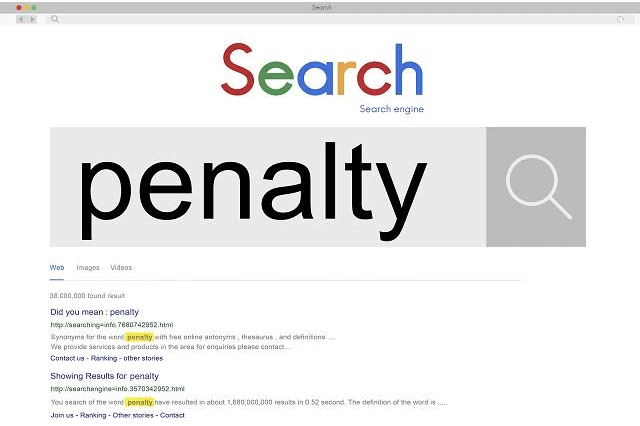Property tax loans have helped thousands of Texans save their land and their homes from the tax collector. For nearly 80 years, Texans have used property tax loans to pay their property taxes on their own schedule-a schedule that works for them and their unique personal and financial situation.
If you’ve found yourself researching property tax loans or even gone so far as to consider taking one out, you’re likely interested in knowing exactly what qualifications borrowers must have to qualify for a property tax loan. Additionally, it’s also helpful to know a little about the characteristics that lenders look for in potential borrowers. In that same vein, it also helps to know about characteristics that don’t typically matter in the eyes of most lenders.
Each lender will, of course, closely review every potential borrower’s application to make an eligibility determination before issuing a loan. But with this information, property owners can at least get a sense for where they stand as they begin considering taking out a property tax loan.
Types of property eligible for property tax loans
Property tax loans are available for all types of property in Texas. While lenders typically avoid making loans to pay property tax on personal property such as boats and automobiles, lenders very often issue loans to pay property tax on both residential and commercial real property.
Therefore, property tax loans are equally available to property owners to pay the taxes on their primary residences as they are to help owners pay the taxes on rental property, office buildings, warehouses, or any other commercial or investment property that they may own.
Owners eligible for property tax loans
Property tax loans are available to virtually all property owners in Texas. Regardless of whether they own just a primary residence or a diverse portfolio of investment properties, most Texas property owners can qualify for a property tax loan.
Despite the generally broad availability of property tax loans, there are still a few key criteria that all potential borrowers must satisfy in order to qualify for a loan.
First, the borrower must be at least 18 years of age. Thus, any property owner seeking to apply for a property tax loan should have a piece of identification-preferably some form of Texas state-issued identification, such as a driver’s license-easily accessible so the lender can quickly verify the potential borrower is at least 18 years of age.
On a related note, it is important to point out that the law provides property owners who are over the age of 65 and eligible to claim certain property tax exemptions are not eligible for property tax loans. Rather, the law is written to encourage those property owner to take advantage of special incentives available to them.
Second, the overdue taxes on the property must be at least $3,500. If overdue taxes are less than $3,500, the property owner will not be eligible for a property tax loan. But so long as the amount of overdue tax is at least $3,500, you will very likely be able to find a property tax loan regardless of how much you owe. Indeed, lenders often make loans ranging from this minimum amount to $100,000 or more.
Owners seeking a property tax loan, therefore, should have a copy of their tax bill at the ready both in order to verify that they owe at least $3,500 in overdue taxes and to help the lender know exactly what size loan they need.
Third, the potential borrower must own the property and be able to prove it. Typically this means presenting the lender with a deed to the property on which taxes are owed, which lists the loan applicant as owner of the property.
Characteristics that lenders look for in borrowers
Beyond the three basic criteria set forth above, there are also other characteristics that lenders look for in borrowers. Possessing or lacking these characteristics will not by any means make or break a potential borrower’s application. Rather, these are factors that are more likely to influence the borrower’s interest rate, repayment schedule, and other terms of the loan.
The first and most influential is the borrower’s credit score. We’ll mention a bit more about this in the next section, but before we get there, a person’s credit score is essentially a rating of the borrower’s creditworthiness. That is, a credit score is a numerical indicator of how likely a person is to repay his or her debts. Thus, lenders are extremely interested in their applicants’ credit scores because it gives them a way to gauge the risk of lending money to that person.
A person with a high credit score typically has a very good credit history, entailing few if any late or missed payments, a history of using credit responsibly for an extended period of time, and proportionally low amounts of total debt. Because lending to a person with a high credit score is less risky for the lender as a general matter, borrowers with good credit typically receive lower interest rates and more favorable loan terms overall.
Somewhat related to credit score, lenders will look into the borrower’s overall debt situation. A borrower with large amount of other debt-especially consumer debt like auto loans or credit cards-presents a larger risk to the lender because that borrower will have fewer funds available each month to make his or her property tax payment if the borrower is also paying down an expensive auto loan or high interest credit card each month.
Finally, lenders will also look into the borrower’s employment and other assets the borrower has to ensure the borrower has a way to pay back the loan.
Characteristics that are less important
Although good credit is definitely a plus when it comes to applying for a property tax loan, bad credit will generally not preclude you from getting the property tax loan that you need. Property tax lenders recognize that everyone experiences financial hardship from time to time, and that sometimes all they need to get back on their feet is a little help. For this reason, many lenders are eager to work with their clients to develop a plan that works for them, even if they have less-than-perfect credit.
Additionally, property tax lenders usually don’t mind if a piece of property is encumbered with another type of lien such as a mortgage. To be sure, this isn’t because property tax lenders are carefree. Rather, the law expressly provides that property tax liens take first priority over any other type of lien that may encumber a piece of property. Thus, you don’t need to own your property free and clear in order to qualify for a property tax loan.



